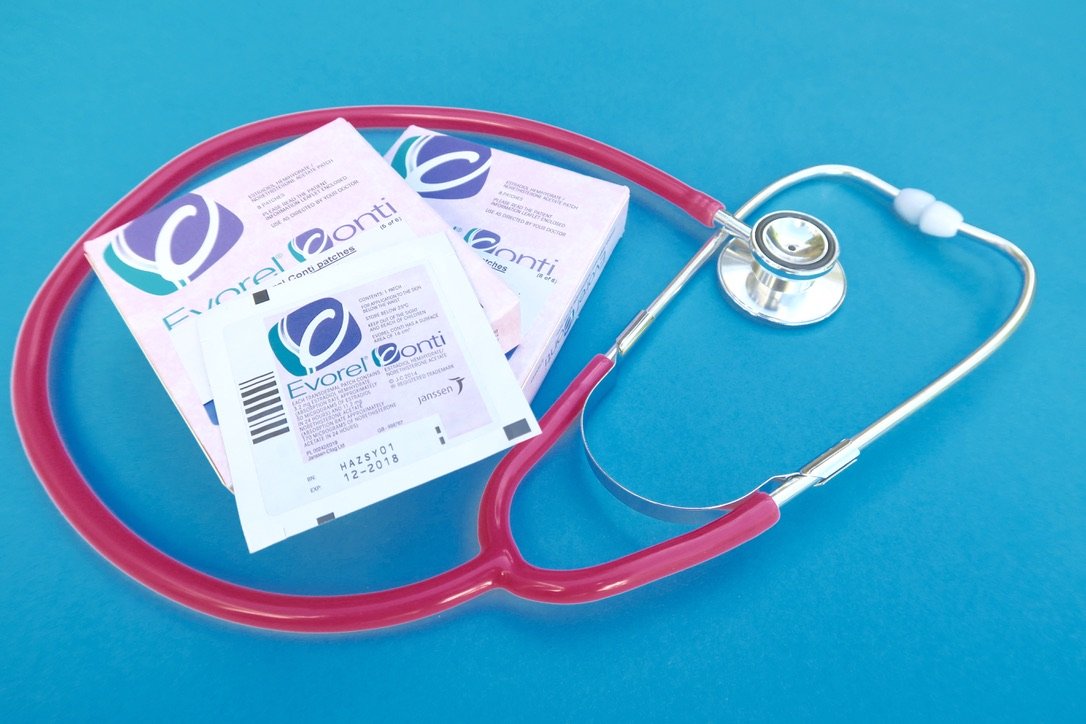Hot Flushes: Medical treatment
How can a doctor help your menopausal hot flushes?
There are prescription treatments available for relieving hot flushes. It might be worth discussing these with your GP.
Clonidine – a high-blood pressure medication used for anxiety disorders and hot flushes. The Royal College of Gynaecology says patches are more effective than tablets.
Gabapentin – an anti-epilepsy medication prescribed for hot flushes. It may cause tiredness, but at least the flushes would stop
Big news about a ‘game-changing’ treatment for Hot Flushes
Exciting findings from Imperial College’s early-stage research trials of the compound MLE4901, which targets receptors in the brain to block the effects of neurokinin, a hormone that causes hot flushes. The study originally published in The Lancet (April 2017) with updates shared in March 2018, found a reduction in the frequency and intensity of hot flushes in 73% of the women who took part in the study, in just 3 days!
The lead scientist on the study called this a ‘game-changer’ for women experiencing more than 7 hot flushes a day. We couldn't agree more! A similar compound is now under development in the USA and it's hoped that a prescription drug may be available fairly soon. It’s hoped that in future, it can be prescribed for women who can’t take HRT or those who are taking it but still experience hot flushes and those who prefer not to take it because of safety concerns.
Watch this space…
For now the most effective medical treatment for hot flushes is hormone replacement therapy (HRT), medically referred to as menopausal hormone therapy (MHT).
Does HRT treat hot flushes?
Depending on the severity and frequency of your hot flushes, you may want to consider HRT for night sweats and menopause sweating. The usual caveat here is that this is something to be discussed with your GP. There are pros and cons to taking HRT.
HRT is the recommended medical treatment for many menopause symptoms, for those able to take it. There are various formulations depending on your medical history and the other symptoms you might also be experiencing. It may be a process of trial and error to find what works best for you.
Do hot flushes happen after stopping HRT?
Most women are able to stop taking HRT after menopausal hot flushes finish, which is usually two to five years from the starting point (but in some cases, this can be longer).
Gradually decreasing your HRT dose is usually recommended, rather than stopping suddenly. You may find that your hot flushes return after you stop HRT, but these should pass within a few months.
For some unlucky few, hot flushes can persist for decades, some doctors have patients in their 80s and 90s who are still on HRT.
The gold standard National Institute for Health and Care Excellence (NICE) menopause guidelines used by healthcare professionals, say: ‘women shouldn’t be advised to stop taking HRT after any arbitrary time limit.’ Yet the myth that you should stop using HRT after five years is still one of the most common reasons women stop taking HRT. This is often because their doctors refuse to continue to prescribe it, in the mistaken belief that taking HRT has a maximum five-year safety limit, regardless of a woman’s age or why she’s taking it.
If you want to understand more about the various options of HRT see our video, What is HRT? and our conversation with the gynaecologist, Dr Karen Morton Talking HRT where you’ll find straightforward accessible information.
We don’t take a view. HRT is your own personal choice, so make an informed decision! Read all about it Faqs about HRT.
Updated August 2024

